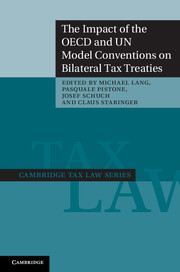Book contents
- Frontmatter
- Contents
- Contributors
- Preface
- Table of cases
- Table of statutes
- General report
- 1 Argentina
- 2 Australia
- 3 Austria
- 4 Belgium
- 5 Brazil
- 6 Canada
- 7 Chile
- 8 China
- 9 Colombia
- 10 Croatia
- 11 The Czech Republic
- 12 Estonia
- 13 Finland
- 14 France
- 15 Germany
- 16 Hong Kong
- 17 Hungary
- 18 India
- 19 Italy
- 20 Lebanon
- 21 Liechtenstein
- 22 The Netherlands
- 23 New Zealand
- 24 Norway
- 25 Peru
- 26 Poland
- 27 Portugal
- 28 Romania
- 29 The Russian Federation
- 30 Serbia
- 31 Slovakia
- 32 Slovenia
- 33 Spain
- 34 Sweden
- 35 Uganda
- 36 The UK
- 37 The USA
- Index
10 - Croatia
Published online by Cambridge University Press: 05 November 2014
- Frontmatter
- Contents
- Contributors
- Preface
- Table of cases
- Table of statutes
- General report
- 1 Argentina
- 2 Australia
- 3 Austria
- 4 Belgium
- 5 Brazil
- 6 Canada
- 7 Chile
- 8 China
- 9 Colombia
- 10 Croatia
- 11 The Czech Republic
- 12 Estonia
- 13 Finland
- 14 France
- 15 Germany
- 16 Hong Kong
- 17 Hungary
- 18 India
- 19 Italy
- 20 Lebanon
- 21 Liechtenstein
- 22 The Netherlands
- 23 New Zealand
- 24 Norway
- 25 Peru
- 26 Poland
- 27 Portugal
- 28 Romania
- 29 The Russian Federation
- 30 Serbia
- 31 Slovakia
- 32 Slovenia
- 33 Spain
- 34 Sweden
- 35 Uganda
- 36 The UK
- 37 The USA
- Index
Summary
The relevance of the OECD and UN Model Conventions and their Commentaries for the interpretation of Croatian tax treaties
Since Croatia gained its independence in 1991, forty-nine new tax treaties have been concluded, forty-four of which are in force and effective. In addition, there are four treaties that were taken over by succession from the former Yugoslavia which are still in force and effective. These are the treaties with Finland, Norway, Sweden and the UK.
All of these treaties generally follow the OECD Model Tax Convention on Income and on Capital (OECD Model) but sometimes also include some of the provisions from the United Nations Model Double Taxation Convention between Developed and Developing Countries (UN Model), as described below. However, during the past two decades, being a young country with a changing and evolving tax system, Croatia has not had a clear tax treaty policy. As a result, the Croatian tax treaties are not always consistent.
Similarly, when it comes to treaty interpretation, a lack of experience and practice has led to different interpretations in similar cases even from the same authorities.
Although it is hard to evaluate one country’s practice when there is not sufficient case law, administrative practice or even scholarly opinions, it can be claimed with a great deal of confidence that the Croatian tax authorities do follow, or at least have the intention of following, the OECD Commentary as a main means of interpretation of tax treaties.
- Type
- Chapter
- Information
- Publisher: Cambridge University PressPrint publication year: 2012

